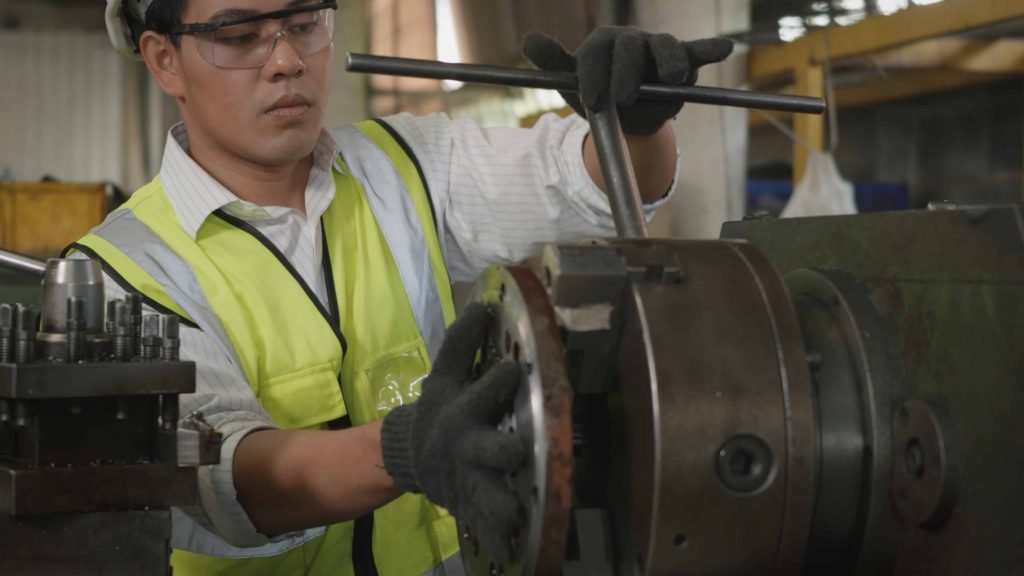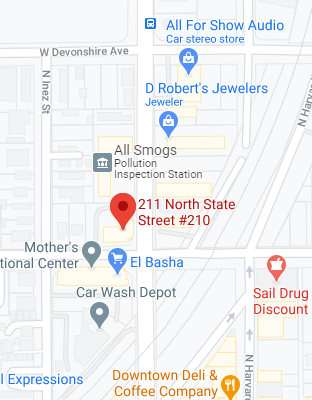
Are immigrants a drag on the economy?
That’s what immigration opponents assert.
They argue, on the one hand, that immigrants steal jobs from Americans. On the other, they claim immigrants are free-loaders abusing scarce American resources, taking out more than they put into the nation’s economic system.
The two positions are contradictory. Either immigrants are stealing jobs and working, or not working and living off public benefits.
Morever, they’re wrong.
Both points are based on a narrow view of undocumented immigrants with limited education and low skill levels.
To better understand the economic contributions of immigrants, let’s take a look at this issue from four different perspectives:
College-Educated Immigrants:
A Rising Tide Lifts All Boats
According to recent Census Bureau reports, almost ½ of our country’s foreign-born population who arrived in the past decade are college educated.
Let me restate that with more specific information.
47% of those who arrived in the U.S. btween 2010 to 2019 have a bachelor’s degree or higher.
How does this compare with U.S. citizens?
Well, the Census Bureau studies also show that 36% of native-born Americans have college degrees.
That’s an 11% differential. In favor of immigrants.

These findings appear to counter assertions that scapegoat immigrants for U.S. economic woes.
It’s true, as critics stress, this is a recent trend. Of the foreign-born who arrived in or prior to 2010, only 31% had advanced degrees.
Demographic and immigration experts believe a significant reason for the uptick from 31% to 47% is related to which countries are now sending larger amounts of immigrants to the U.S. than before 2010.
Over the past 10 years, the number of immigrants from China and India, two countries that send highly educated persons to the United States, are among those which have moved to the front of the U.S. immigrant influx. In addition, the number of African immigrants, the most educated immigrant population in the United States, has also soared.
Yet, does college education benefit the nation?
Most economists would answer in the affirmative. A more educated and developed country has competitive advantages over less educated and developed ones.
In general, higher education and training leads to the ability to create more goods, make more products, and offer more services that can sold both internally, within the U.S., and abroad.
And from an economic standpoint, that’s a good thing.
But the economic impact of immigration cannot be grasped solely through the lens of foreign-born advanced degree holders.
Let’s look at a few issues related to less-skilled workers.
Less-Skilled Undocumented Immigrants: Funding Baby Boomers And Local Taxes
Every year, the Social Security Administration (SSA) collects billions of dollars in taxes from unknown persons.
The SSA does not know who paid.
It does know, however, a majority of those funds were filed by employers on behalf of the most unlikely funders of Social Security: undocumented immigrants.
It is a common perception that undocumented immigrants take more out of the United States economic system than they put in.
A recent Social Security Administration study addressed this issue.
Here’s what the SSA found:
- The SSA reported that about 1.8 million immigrants work with fake social security cards.
- Many of the 1.8 million undocumented immigrants are unskilled workers.
- They pay $13 billion dollars annually into the retirement trust fund.
- Only $1 billion in benefits is claimed.
That’s a net gain of $12 billion dollars per year for the Social Security Administration.
The positive impact is a huge benefit to the Baby Boomer generation, U.S. citizens born between 1946 and 1964, which constitute nearly 20% of the American public.
As they have started to retire, the SSA has grown more reliant on this unclaimed stream of revenue – to meet what would otherwise be a federal shortfall.
In other words, without undocumented immigrant contributions, the SSA would not be able to meet the Baby Boomers’ retirement claims.
By 2040, the Social Security Administration projects the number of undocumented workers paying into their system will grow to 3.4 million. This means the $12 billion dollar annual surplus could double.
The contributions of undocumented immigrant workers will continue past the Baby Boomers, and into that of Generation X retirees, citizens born between 1965 and 1979.
The Institute on Taxation and Economic Policy, a Washington, D.C., think tank, recently added their voice to this issue.
Similar to legal residents, the Institute pointed out, undocumented immigrants help fund public schools and local government services by paying sales and property taxes.
In their estimate, immigrants pay about $10.6 billion dollars per year in state and local taxes.
Given such studies, it seems short-sighted to argue that undocumented immigrants drain the system.
Immigrant-Owned Businesses: Your Next Employer May Be Foreign-Born

The number of undocumented entrepreneurs are growing in the United States, as working for self constitutes one of the main ways immigrants can thrive in America’s economy.
The federal government does not require undocumented immigrants to have work authorization or a social security number in order to be an independent contractor or start a business.
Hence, it is hardly surprising undocumented entrepreneurs are a growing demographic.
In 2016, there were 770,000 in America. Undocumented entrepreneurs earned $15.2 billion in business income in 2016.
Today, there are more than 815,000, according to research from the bipartisan nonprofit New American Economy.
In 20 states, research found, they have higher rates of entrepreneurship than naturalized immigrants and native-born Americans.
What does this mean?
New businesses are the main driver of job growth in the United States, and undocumented immigrants play an important role — founding businesses at far higher rates than the U.S. population overall and employing millions of American workers.
What Are The Economic Motives Of Immigrant Laborers Coming To The U.S.?
Last but not least, I’d like to discuss immigrants at the lower economic rungs of our society.
On Thursday mornings, when I go for my early morning walk, I always see the same two individuals rummaging through trash cans.
They look for items that can be recycled for cash.
Although there are those who would make fun of such individuals, the truth is that they are working hard to economically sustain themselves.
The income earned through recycling can help families purchase necessary items like food, clothes, and medical care.
This is how I view the motivation of many immigrants who travel thousands of miles, often on foot, in the attempt to gain entry into the U.S.
In a Texas newspaper, the Daily News, an editorial writer recently pointed out that he was sure immigrants from Guatemala, El Salvador, and Honduras, “just like you and I, don’t really want to leave home.”
I agree.

Unfortunately, many Americans do not see those arriving at foreign ports of entry – not just on our Southwest borders, but also throughout the world – in such terms.
They assert, “Immigrants are coming to steal American jobs.”
This position, as I emphasized earlier, is wrong.
Their position is egotistical. They assert “everybody wants what is ours.”
Yes, it’s true that the vast majority are coming here to earn a sustainable living.
But that is not the same as claiming they want what belongs to us.
They want to find work opportunities that are unfilled.
Unfortunately, many immigrants coming to the U.S. today do not grasp our resources are finite.
Their blindness is caused by various factors.
- They see fancy pictures on television, or on the internet, of people living glorious lives over here.
- Many are spoon fed by less-than-desirable types, like smugglers, that once they set foot in the U.S., they will be able to work here, find a good-paying job, and help their family members whom they left behind.
- Some are enticed by social media postings of relatives living in the U.S., who often share exaggerated photos of living in luxury.
Yet, this motivation to earn a good living, to have nice things, is not the same as “coming here to steal jobs”.
They are coming here, in large part, due to their homeland’s faltering economic conditions.
Rather than starve, they pack up their bags, and head to an uncertain future with the belief that their efforts will make a difference in the lives of those they love.
Steal jobs?
That’s political hogwash.
Recommended Reading:
Ready to take a serious and honest look at the strengths and weaknesses of your immigration case? Let’s get started with a personalized strategy and planning session . . .
Here's How It Works
1
Call Our Office
Immigration law doesn’t have to be confusing. You don’t have to live in fear of being deported and separated from your family. A comprehensive 30-minute Strategy And Planning Session will take the stress out of not knowing your options first-hand.
2
Meet With Carlos
Every case is unique. We refuse to take cookie-cutter approaches to your case. After we discuss the ins and outs of your immigration and family situation, Carlos will outline your chances for success and how to overcome obstacles standing in your way.
3
No Pressure - No False
Promises
Hiring a lawyer is a big investment, and we will not pressure you to hire us or push you into a plan you don’t understand. If we cannot help you, we will tell you. We will not take your case, unless we believe we can make a difference for you and your family.




